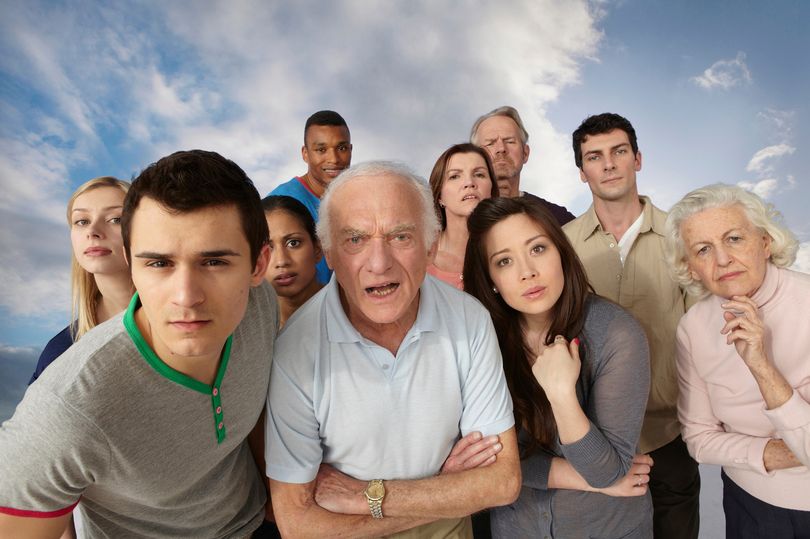Now here’s an interesting one. Apparently people who are scared of catching Covid are also the most judgmental and disapproving – and not just about being careless with restrictions, but any wrongdoing.
Yes, researchers have been looking into how we make moral judgments and it appears our morality is closely linked to concerns about our health and safety.
So our judgments on wrongdoing aren’t completely rational.
The study ran between March and May 2020, with more than 900 participants in the US presented with a series of scenarios.
They were asked to rate them on a scale from “not at all wrong” to “extremely wrong”.
This enabled the researchers to measure responses across five key moral principles: harm, fairness, in-group loyalty, deference to authority, and purity.
The findings were published in the journal Evolutionary Psychology and scenarios included loyalty: “You see a man leaving his family business to go work for their main competitor”, and this one on fairness: “You see a tenant bribing a landlord to be the first to get their apartment repainted.”
The big surprise was people who were most concerned and fearful of catching Covid-19 judged the behaviours to be more wrong than those who were less worried.
“There is no rational reason to be more judgmental of others because you are worrying about getting sick during the pandemic,” said Professor Simone Schnall in the University of Cambridge’s Department of Psychology, senior author of the report.
She added: “These influences on judgments happen outside of our conscious awareness. If we feel that our wellbeing is threatened by the coronavirus, we are also likely to feel more threatened by other people’s wrongdoing – it’s an emotional link.”
It seems many of us see a connection between physical disgust and moral condemnation.
“Disgust is an emotion we think evolved to protect us from harm – avoiding a filthy toilet that might contaminate us with disease, for example,” said report author Robert Henderson, a PhD student and Gates Scholar also at the University of Cambridge.
“But now we apply it to social situations too, and we can feel physically jeopardised by other people’s behaviour.”
He added: “The link between being concerned about Covid-19 and moral condemnation is about risks to wellbeing. If you’re more conscious of health risks, you’re also more conscious of social risks – people whose behaviour could inflict harm upon you.”
And you call them out.

